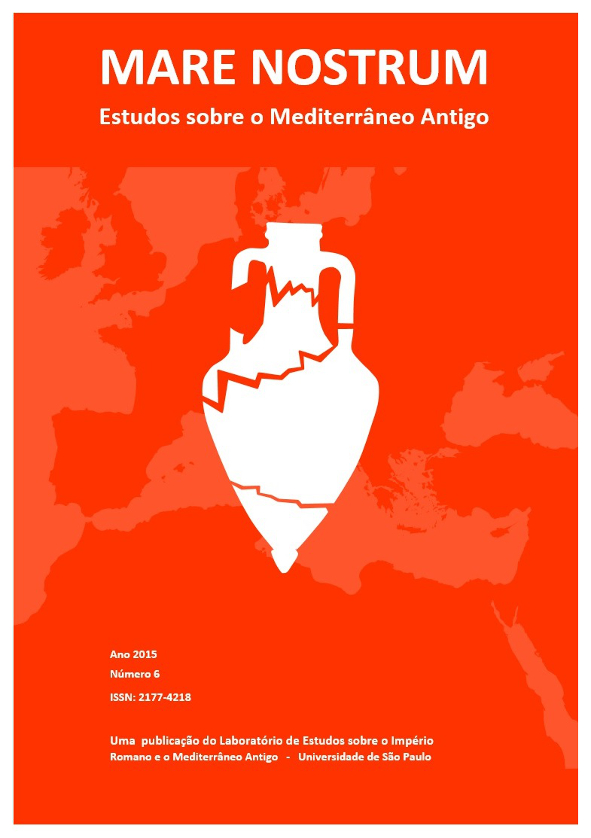Los Galos de César: la etnografía y la virtus en el Bello Gallico
DOI:
https://doi.org/10.11606/issn.2177-4218.v6i6p21-35Palabras clave:
Julio Cesar, Etnografía Antigua, GaliaResumen
The work usually entitled Commentarii de Bello Gallico was written by Gaius Julius Caesar while he was proconsul at the provinces of Illyricum and Cisalpine Gaul (59-50 b.C.E.) and narrates his campaigns in Gaul, with its conquest and subjection as his major aims. The present article intends to analyze how Caesar presents his ethnography of Gaul in the Bello Gallico as a metonymy of the region by the inhabitants, thus excluding the ethnographies of Germania and Britannia. Furthermore, we will explore how the author constructs the image of an ideal enemy through the articulation of that ethnography with the concept of virtus, creating an opponent so valorous that he could even sometimes be compared with the Romans, but who, nevertheless, was subdued and conquered by him, Caesar.Descargas
Los datos de descarga aún no están disponibles.
Descargas
Publicado
2015-12-14
Número
Sección
Artículos
Licencia
Mare Nostrum no se hace responsable del contenido vertido en la publicación, el cual depende exclusivamente del autor o autores del texto.
La reproducción de textos publicados por Mare Nostrum se distribuye bajo una licencia de uso y distribución de Creative Commons Attribution-NonCommercial 4.0 International (CC BY-NC).
Los autores que publican en esta revista deben estar de acuerdo con los siguientes términos:
- Los autores conservan los derechos de autor y garantizan el derecho de la revista a realizar la primera publicación con una colaboración simultánea autorizada bajo la licencia Creative Commons Attribution License, que permite difundir el trabajo con el reconocimiento de su autoría y de que ha sido publicado inicialmente en esta revista.
- Los autores tienen la posibilidad de realizar acuerdos contractuales adicionales para una distribución no exclusiva de la versión del trabajo publicada en la revista (por ejemplo, compartirla en un repositorio institucional o publicarla en un libro), siempre que quede constancia de su publicación inicial en esta revista.
- Se permite e incluso se anima a los autores a que compartan su trabajo online (por ejemplo, en un repositorio institucional o en sus páginas web) antes y durante el proceso de envío, con vistas a que se generen intercambios productivos, así como una citación del trabajo previa a la publicación y de mayor calado (véase The Effect of Open Access).
Cómo citar
Los Galos de César: la etnografía y la virtus en el Bello Gallico. (2015). Mare Nostrum, 6(6), 21-35. https://doi.org/10.11606/issn.2177-4218.v6i6p21-35









